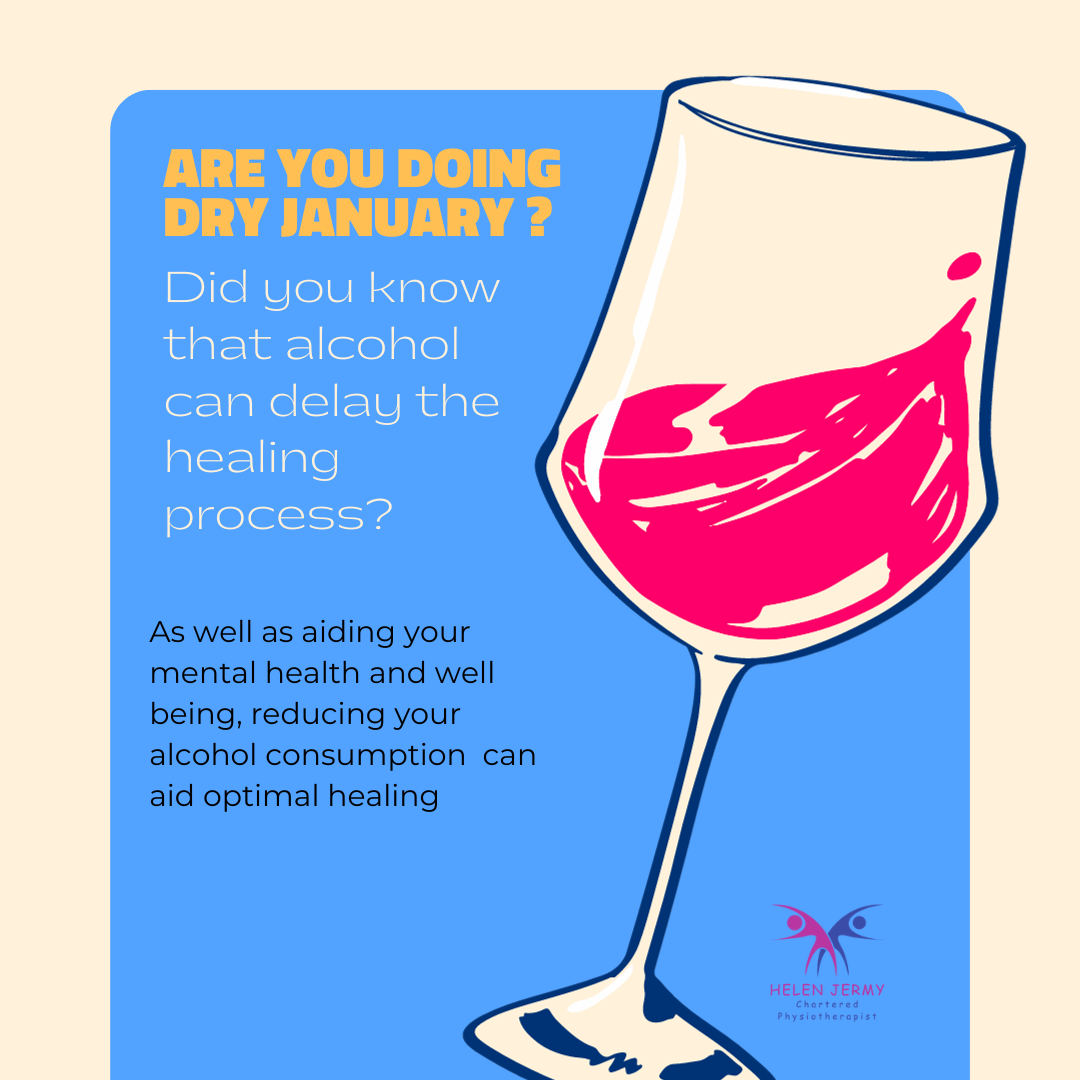Dry January - Effects of Alcohol on Tissue Healing

Do you know how alcohol can impact healing?
Alcohol can have complex long and short term effects on the healing process, depending on various factors such as the type & severity of the injury, the amount of alcohol consumed, and the individual’s overall health.
**Delayed wound healing:**Moderate alcohol consumption may have some cardiovascular benefits. Excessive drinking can interfere with the normal inflammatory response, delaying the formation of blood clots which are crucial for stopping bleeding and initiating the healing process, and reducing the production of growth factors essential for tissue repair.
Risk of Infection:
Alcohol can weaken the immune system making the body more prone to developing infections, hindering the healing process and increasing the risk of complications.
**Impaired Nutrient Absorption:**Alcohol can interfere with the absorption of essential nutrients, such as vitamins A, C, and E and zinc, that are crucial for the healing process. Malnutrition can negatively impact tissue repair and regeneration.
Increased Inflammation:
Acute inflammation is a natural part of the healing process, but excessive or chronic inflammation can be detrimental. Moderate alcohol consumption may have anti-inflammatory effects, excessive and chronic alcohol intake can lead to increased inflammation. Persistent inflammation can impede the healing of injuries and contribute to chronic health conditions.
Dehydration:
Alcohol is a diuretic, causing increased urine production and potential dehydration. Dehydration can affect blood flow and nutrient delivery to tissues, slowing down the healing process.
Negative Effects on Bone Healing:
Excessive alcohol intake has been linked to impaired bone healing. It can interfere with bone formation and mineralization, increasing the risk of fractures and hindering the recovery of bone injuries.
Risk of Complications: Chronic alcohol use can lead to general poor health, liver dysfunction, and an increased risk of complications during and after surgical procedures. Compromised liver function can reduce the effectiveness of medications used in pain management or other aspects of the healing process and may lead to adverse side effects.
**Psychological Impact:**Alcohol use can negatively affect mental health, potentially leading to depression and anxiety. Psychological well-being plays a crucial role in overall healing, and mental health issues can impede the recovery process.
Moderate alcohol consumption may not have as pronounced effects on healing as excessive and chronic use. However, it’s advisable to consult with healthcare professionals to determine the individualised impact of alcohol on the healing process based on specific health conditions and circumstances.
